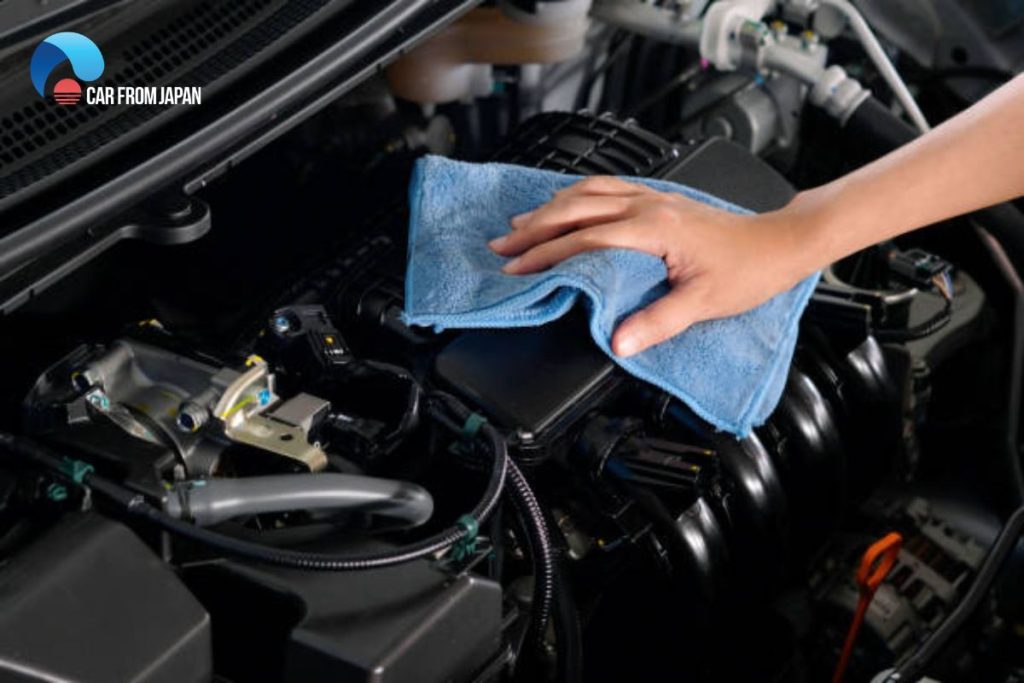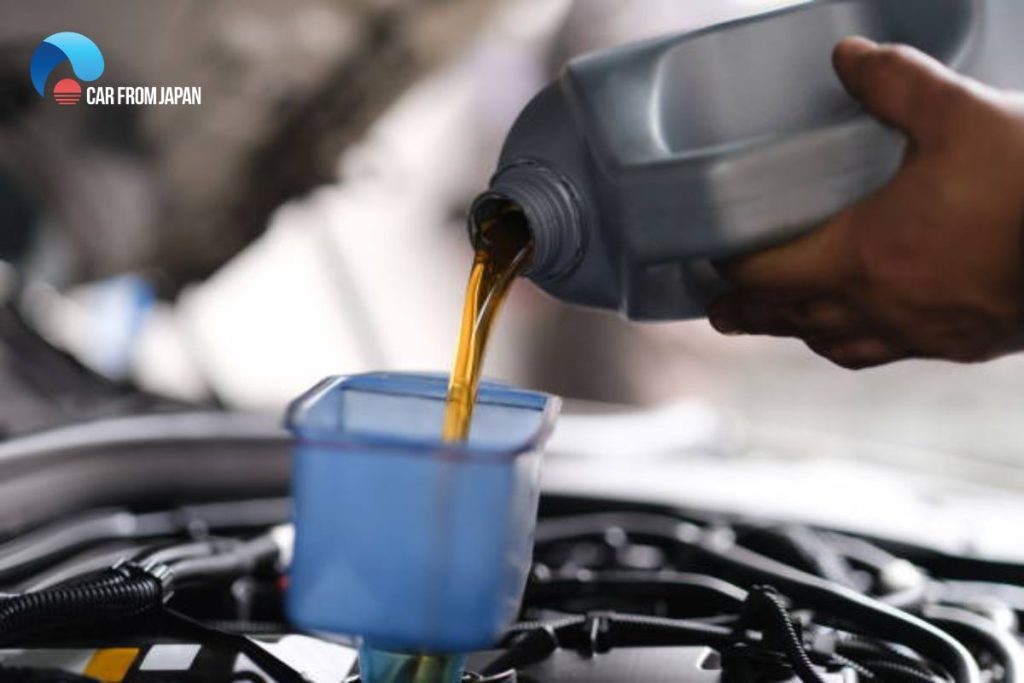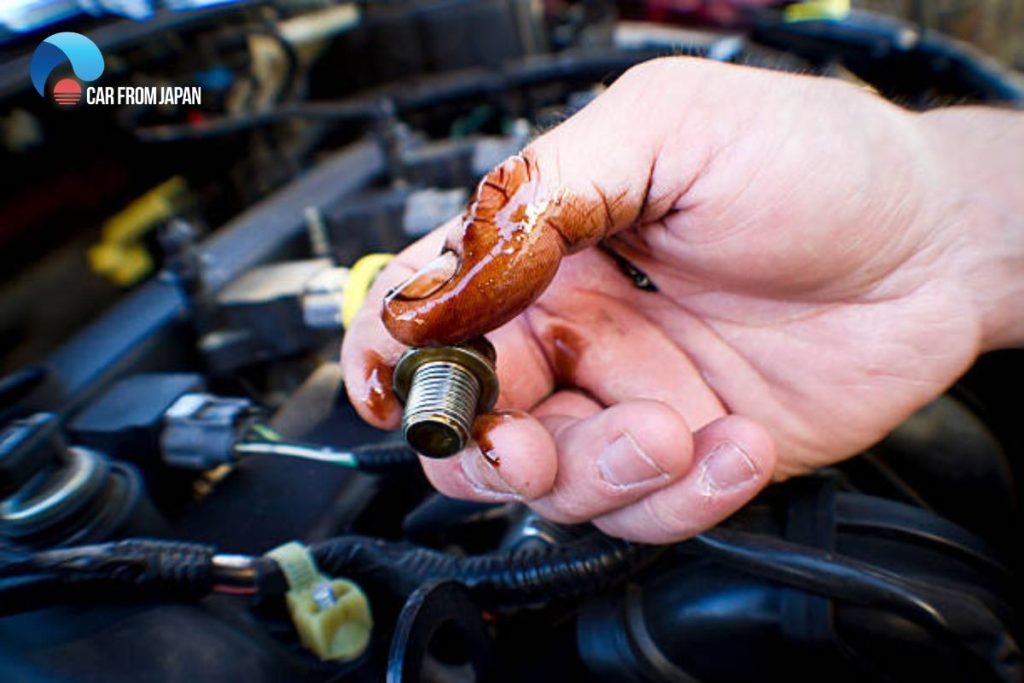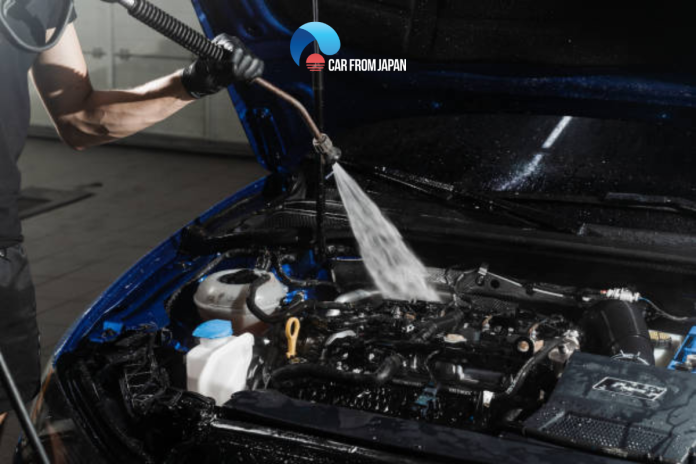When it’s time for an oil change, you might hear about something called an engine flush. It’s often promoted as a way to get your engine completely clean, but opinions are sharply divided on whether an engine flush good or bad for our car. Before you decide, it’s important to understand what an engine flush really does and if it’s the right choice for your car.
Contents
What Is An Engine Flush?
An engine flush is a process of cleaning up the sludge and gunk deposited in your engine for years. You have to add a chemical additive to the oil and pour the mixture through the oil filler cap.
Idle the car for 10-15 minutes, allowing the additive-mixed oil to circulate through all the engine parts and dissolve the dirt deposits. Then, you have to flush the oil, replace the oil filter, and fill up the engine tank with fresh oil.
Like synthetic or synthetic blend motor oils, engine flush contains additives that clean the internal moving components of the engine and improve performance.
The fundamental idea behind engine flushing is that it will remove any traces of combustion-related buildup in your engine, leaving it clean and more highly functioning.

The detergent and dispersant packages that are already included in today’s engine oils perform an excellent job of cleaning lubricated surfaces and preventing sludge deposits from forming on them. But these additives only have a limited shelf life.
Oil sludge may also get up in areas you don’t want if you don’t replace your oil as frequently as you should. In this situation, an engine flush could be your best choice.
Benefits of flushing an engine
An effective engine flush will help dissolve sludge and remove deposits, restoring your engine to like-new condition. Therefore, it may be the first step in returning a neglected car to its original state.
Engine flushing also has the potential to increase fuel efficiency. Your engine’s internal contamination might cause oil breakdown and increased viscosity.
Sludge and deposits that accumulate on engine components can also increase resistance, which a loss of gasoline. To maximize fuel efficiency and save money, cleaning your engine with an engine cleaner flush may make parts operate more smoothly.
The ability of an engine flush to reduce emissions is one advantage that will only become more significant in the years to come.
Because of the possibility of piston rings sticking, which we previously explained, oil may enter the combustion chamber and ignite.

As the consumed oil leaves the engine, it will produce hazardous deposits, which will raise exhaust emissions. The finest oil flush solution aids in releasing jammed rings and reduces oil consumption, hence reducing pollutants.
Drawbacks of flushing an engine
However, there are certain possible risks associated with utilizing engine flush, and many people have asserted that it can harm an engine.
According to Ford, engine flush products shouldn’t be utilized. “Do not use oil additives or other engine treatments,” the company advises. They could harm the engine under some circumstances.
In the event that you do utilize one and an engine issue arises later, your warranty will be void. One of the most concerning aspects may be this. Your warranty can be worthless even if the engine is undamaged.
And if something else goes wrong with your automobile that has nothing to do with the engine, you might no longer be able to get it fixed by the manufacturer under warranty.
Because they are concerned that the chemicals may react with rubber or plastic engine components while also removing the dirt and sludge, and lead to early engine deterioration and failure, many manufacturers do not advise using engine flush.
Some auto enthusiasts worry that doing engine flushes might transfer chunks and deposits from the engine’s essential parts, letting them damage more crucial parts.
Instead of being concentrated in just a few places, the sludge may then be disseminated more broadly throughout the engine, which might result in a further decline in performance.
Engine flushes may provide the most risk when employed in high-mileage vehicles. The engine seals in vehicles with a lengthy lifespan may be worn and leak.
In these situations, the mixture of oil and muck is effectively functioning as a sealant, keeping them alive and concealing their actual state.
It is absolutely not worth doing an engine flush if this is the situation with your engine.
It would be best to leave things alone and avoid disturbing the sludge, which could be the sole effective defense against oil leaking past the seals in the older engine. If you use it in this circumstance, your engine may leak or get worse.
How Does the Sludge Form Inside the Engine?

Not changing the oil regularly is the main reason for forming deposits and sludge inside the engine components.
Some drivers have the habit of going too long between oil changes, and some don’t bother about it unless the engine shows any warning signs.
The other two common causes of gunk buildup are:
- Doing mostly stop-and-go driving
- Leaving the car in the garage for months
Not driving the car for a long time will damage the engine components. It happens mostly in winter when condensation builds up because extreme cold does not let the oil circulate in all the engine parts.
Is Doing an Engine Flush Good or Bad?
Flushing is not necessary for an engine getting the oil changed at the manufacturer’s prescribed intervals or as per the mileage and driving conditions. Besides, the owner’s manual never suggests flushing the engine.
However, a flush is not a bad idea if you are spending money on a used car that has driven 100,000 km or more and has a history of not changing oil regularly.
Not changing the oil can create a visible sludge buildup in cars that run far less than 100,000 km.
Thick layers of deposits can cause severe drivability issues, the engine light to come on, a badly damaged crank, the blocking of the oil pickup tube, and more engine problems.
As flushing washes gunk and dirt out of the engine’s mechanism, it is not a bad option when needed. Also, it cleans up the engine components and keeps the new oil clear of dirt and other particles.
Check out this video from Owen Lucas to know more details about how to do an engine flush properly:
Conclusion
So, if you are facing the dilemma of whether the engine flush good or bad, you should make a decision after examining the vehicle’s condition. If it’s an old car and has many miles on it, you should choose this option.
Flushing will clean up the engine and keep the car running for many more miles. However, a well-maintained and serviced car that changes the oil regularly won’t need it. The truth is, most cars will never need an engine flush.




very well described,
Thanks.
Is it harmful to apply on animals wounds?
I just had the gasket seal replaced on the engine block, along with the water pump replaced and radiator replaced. The shop also did an engine flush without asking me and said I needed to bring it back in 2-3 days later. My problem is that I can’t get back to the shop for 2 weeks since its 2 hours from my house. My car isn’t that old (2009 Toyota Camry), but they kept telling me it had some foreign substance in it from previous work. I regularly get oil changes and fix things when required. I didn’t pay for the engine flush so I know they weren’t trying to up sell me, but I’m concerned as to what its going to do to my engine. I think waiting 2 weeks to finish things might harm it. Do I take it to another shop and if so, what do I tell them besides what was done? I’m worried about my transmission blowing. I went to this service shop on a recommendation of someone else so I’m a little nervous about all this. Car broke down unexpectedly.
Just Great Informative article. Lots of information about engine flush. Many many thanks for sharing with us.
Thanks.
Carwell India is offer best car service in kanpur
Shame on you.Your oil must be changed every 12 month or 10 k km to be in great condition
I have a 2013 Nissan maxima which I purchased in 2015 with 543 miles, now it only has 23,000 miles but I never changed the oil. the service engine light came on and I took it to a Nissan dealership and they said that they will need to do extensive work to remove the sludge, can I flush the engine or is that not recommended?